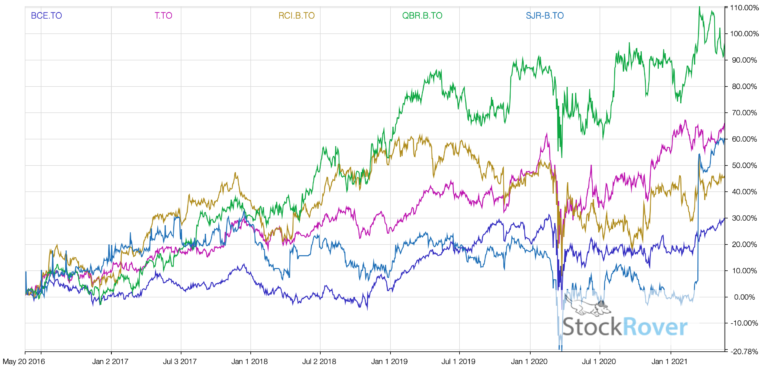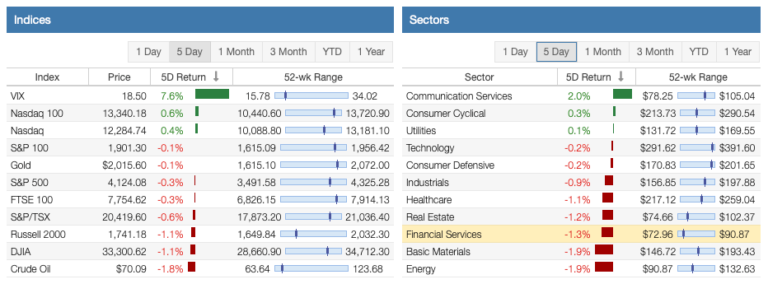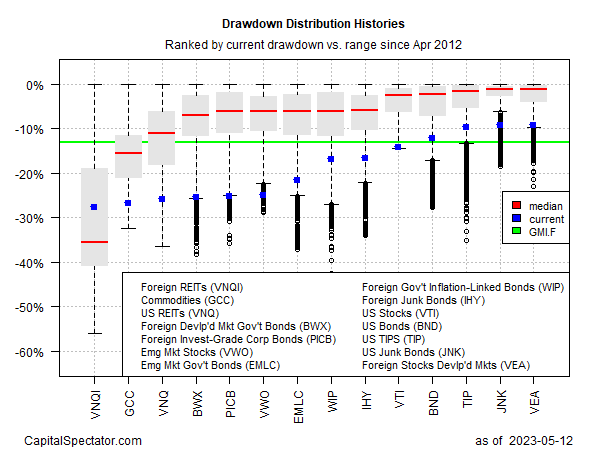
Save for the Future: Here’s Why
We’ve all been guilty of putting off saving, reassuring ourselves that we are young and have enough time. We tell ourselves we’ll save when we get an increase, get promoted, get a new job, or associate saving to any other event or milestone that will take place sometime in the future.
But, the best time to begin saving for the future is as soon as possible, according to almost any financial expert. Unfortunately, most people don’t. According to the 2019 Planning & Progress Study from Northwestern Mutual, 15% of Americans had no retirement savings, 22% had saved less than $5,000, and 5% had less than $25,000. These are not good numbers. Furthermore, 45% of people think they will outlive their savings.

Here’s Why You Should Save for the Future
Instant gratification is the culprit that blocks people from saving, but making small sacrifices and putting off immediate pleasure will help you reap more rewards in the future. It’s easy to blow your entire paycheck every month, but here’s why you should set aside some money to go towards your savings.
Financial Security and Freedom
Many people live with crippling anxiety, knowing that since they have little to no savings, losing a job or not being able to work due to an accident or injury will have dire consequences.
Having financial security gives you peace of mind. You know that you have enough money to live comfortably and save so that if anything happens, you can cover yourself until you’re back on your feet.
Savings also allows you a certain level of freedom. For example, if there’s a pricy item you’ve been eying for a while, your savings can help you purchase it.
Feel like you need a vacation, like going to Cape May? Savings allow you to pay for it. While it’s okay to dip into your accounts for fun events, these should be planned for the most part, and if they are impulse purchases, they should only be rare occurrences.
Easier-to-Manage Big Expenses
While most large purchases like houses and cars are financed, having money saved to use as a deposit helps bring the interest down, which means your monthly installments are lower.
If you’ve saved enough to buy a car for cash, you cut out paying interest altogether as you won’t need an auto loan. It also means that you’re not responsible for another monthly bill. You can sometimes negotiate for a lower price since you’re paying the total amount in one go.
An Emergency Fund Prevents You from Plunging Further into Debt
An emergency fund is essential. Most people already have debt in the form of a home loan, auto loan, student loan, and credit cards, yet still don’t have money for unexpected expenses.
Emergencies happen. Whether you need to repair your car, replace your refrigerator or pay for a medical expense, you will be forced to take a loan with interest if you don’t have the extra money in your budget or savings. A loan means you’ll pay more for the expense and add another bill to your already tight budget once you need to start making repayments.
You Can Retire
How much money do you need never to work again? With the state of the economy, many people wonder if they will ever be able to afford to retire, never mind retire early. However, when you start contributing to a retirement fund early, you benefit from compound interest and have more time to plan and save for retirement.
How to Save for the Future
Knowing you need to save is one thing, but the next step is to put money aside to save. You may feel your budget is already stretched, and no money is available. But saving a little every month is better than nothing. Here’s how to do it:
Tweak Your Spending to Free Up Some Money
How can you save money if your funds dry up towards the end of the month and you find yourself waiting for your next paycheck? It may seem like you have just enough to live but nothing left over to save, but making even tiny tweaks to your spending habits can free up some money.
Think about the non-essentials you spend money on and see where you can cut back. For example, if you enjoy dining at upscale restaurants over the weekends, you don’t need to give this up completely, but instead of every weekend, you can go twice a month.
Automate Payments to Your Savings Account
The key to building savings is consistency. To this end, it helps to automate the process. Instead of manually transferring money into a savings account after your bills are paid, set up a debit so that the money is transferred on payday.
If your financial situation changes and you can no longer afford to save the same amount, you can adjust it to what is within your budget. But make sure you set something aside every month.
Choose the Right Savings Account
You should have both long-term and short-term savings. The type of account you choose to keep your money in will depend on your financial goals. However, as much as possible, opt for high-interest accounts.
It’s a good idea to keep a small amount in an ordinary savings account as this allows fast access to your funds which is great for emergencies. In addition, regular savings accounts usually have low-interest rates, so your money doesn’t grow.
Over and above this, you can save for the short-term in high-yield accounts and money markets. These give you higher interest rates, but you have less access to your money. In addition, depending on the bank, you may have to wait a certain number of days before withdrawing your money, or you may be limited to a certain number of withdrawals per year.
To save for the long-term, you must have a retirement fund like a 401(k) or an IRA. Your employer will sponsor your 401(k), so they will match your contributions to a certain percentage. An IRA is an individual retirement fund, meaning you will solely be responsible for contributing. The easiest and often the best path forward is to build a portfolio of passive index funds or exchange-traded funds (ETFs) because they are inexpensive, and you capture most of the returns minus fees over time.
Final Thoughts on Save for the Future: Here’s Why
Unfortunately, savings for the future is something most people put off. When you are young, retirement seems a long way off. However, many things can happen, from when you start earning income to when you retire. For instance, your health may suffer, you may lose a job, you can move, and family circumstances can change. Next, suppose you have children your expenses will rise. Whether saving for a few years or three decades into the future, it is essential that savers start early. The opportune time to start saving is now.
Thanks for reading Save for the Future: Here’s Why!
Author Bio: This is a paid guest post by Deborah S. She has always had a keen interest in finance, and since COVID hit, she has taken the time to discover her talent in writing. Now armed with her love of finance and writing, Deborah has set out on a journey to spread her work, and she hopes, with it, some valuable knowledge. Deborah likes to keep up to date with the current goings-on in the world, and her favorite pastime is a relaxing walk in the park at sunset.
Related Articles on Dividend Power
Here are my recommendations:
If you are unsure on how to invest in dividend stocks or are just getting started with dividend investing. Take a look at my Review of the Simply Investing Report. I also provide a Review of the Simply Investing Course. Note that I am an affiliate of Simply Investing.
If you are interested in an excellent resource for DIY dividend growth investors. I suggest reading my Review of The Sure Dividend Newsletter. Note that I am an affiliate of Sure Dividend.
If you want a leading investment research and portfolio management platform with all the fundamental metrics, screens, and analysis tools that you need. Read my Review of Stock Rover. Note that I am an affiliate of Stock Rover.
If you would like notifications as to when my new articles are published, please sign up for my free weekly e-mail. You will receive a free spreadsheet of the Dividend Kings! You will also join thousands of other readers each month!
*This post contains affiliate links meaning that I earn a commission for any purchases that you make at the Affiliates website through these links. This will not incur additional costs for you. Please read my disclosure for more information.
Published at Sat, 13 Aug 2022 04:00:00 -0700




